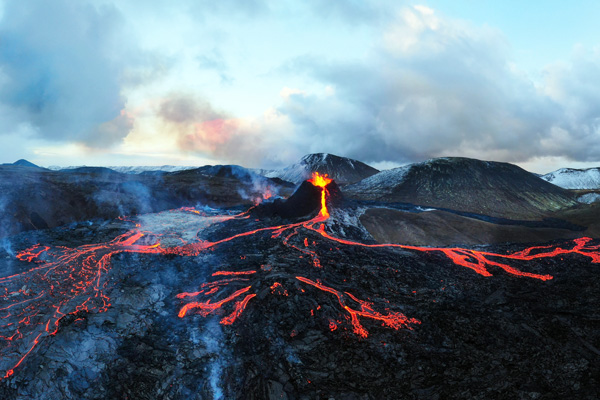Thursday, December 7, 2023

The recent eruption at Mount Marapi in Indonesia, claiming 23 lives, has shed light on the inherent dangers of visiting active volcanoes and prompted a reassessment of the country’s early warning systems. Following the tragedy at Marapi, eruptions were recorded at four other well-known volcanoes across Indonesia, emphasising the nation’s vulnerability to volcanic activity as part of the Pacific Ring of Fire.
Tourism centered around visiting mountains, including active volcanoes, is a significant industry in Indonesia. In 2020, records from the Indonesian Mountain Guides Association indicated that 150,000 foreign travelers and three million domestic tourists engaged in mountain climbing activities. Popular destinations include Mount Merapi in Central Java, despite its status as one of the country’s most active volcanoes.
While climbers are advised to maintain a safe distance, tourism packages often include activities such as jeep rides and sunrise viewing. The allure of these experiences attracts thousands of tourists daily during peak seasons. Mount Merapi experienced a fresh eruption just days after the Marapi incident, underscoring the constant risk associated with these volcanic destinations.
Despite the dangers, tourism officials have implemented measures to manage risks and enhance safety. Early warning systems, including observation points and lava barriers, aim to provide alerts and mitigate potential threats. However, the limitations of predicting volcanic eruptions have become apparent, as evidenced by the sudden and unexpected nature of the Marapi eruption.
The need for strict adherence to safety recommendations by tourists and travel agencies is emphasized, considering the imperfect predictability of volcanic activities. Indonesia is home to 127 active volcanoes, and more than half of them are deemed prone to eruption, necessitating robust safety measures.
The challenges in predicting volcanic eruptions, often occurring suddenly and with limited warning signs, highlight the importance of vigilance and adherence to safety guidelines. Authorities recommend maintaining a safe distance from active volcanoes, and tourists are urged to use certified travel agents or tour guides who prioritize safety. While tourism in volcanic areas presents economic opportunities, balancing the industry’s growth with the safety of visitors is a critical concern.
The tragic incidents at Mount Marapi and subsequent eruptions serve as a sobering reminder of the unpredictable nature of volcanic activities and the necessity for ongoing efforts to enhance safety protocols, communication, and public awareness in regions prone to volcanic hazards.
Inputs: CNA
Tags: indonesia, Volcano, Volcano tourism
Wednesday, May 1, 2024
Wednesday, May 1, 2024